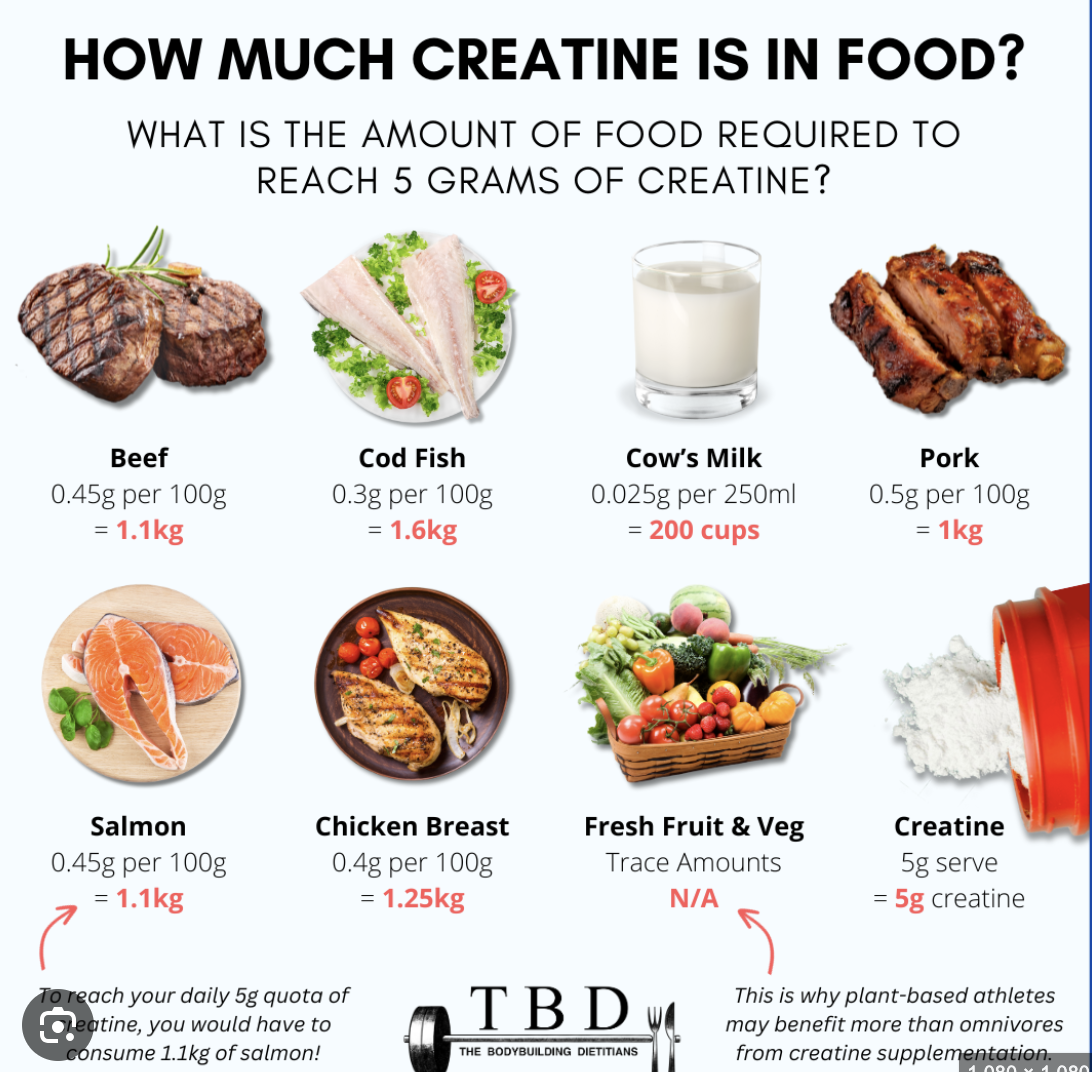You Don't Need Creatine, Here is Why!

You Don't Need Creatine, Here is Why!
Let’s get this out of the way: creatine isn’t evil.
It’s not poison.
It’s not going to instantly ruin your life.
But if you’re just starting out in fitness and diving into beginner calisthenics, it’s definitely time to rethink why you’re even reaching for that creatine tub in the first place.
Creatine is found naturally in foods like meat and fish. Your body also makes it on its own.
That’s right, your liver, kidneys, and pancreas are already hard at work turning it into creatine phosphate, which your muscles use for quick energy.
It’s basically your body’s own little energy booster when you’re sprinting or doing short bursts of intense effort.
So why are you taking creatine again?
Oh right, to get bigger. To look ripped. To be stronger.
Cool. But… why? Are you a professional athlete getting paid to perform?
Or are you just trying to look good in the mirror?
If the answer is vanity, you’re heading down the wrong road.
Here’s the thing: creatine might work for some people, especially those with naturally lower levels. But not everyone responds the same.
And just because some studies show some muscle gain or strength, doesn’t mean it’s a must-have.
Especially not when those studies usually test 30 to 50 guys for 12 weeks. Come on. That’s not a great sample and 12 weeks vs a lifetime is a significant bias.
Let’s talk side effects.
Even if they’re mild, they’re still side effects. We’re talking bloating, nausea, muscle cramps and maybe even some hair thinning.
If you're someone who mixes creatine with caffeine or pre-workout powders, congratulations, you're playing supplement roulette.
Bonus points if you’re also dehydrated!
Also, remember when creatine used to be classified as doping? Yes. In France and other parts of Europe in the late '90s, it was treated like a banned substance. That alone should make you pause.
Now let’s get practical.
You want to get the daily dose of creatine naturally?
You’d have to eat an absurd amount of red meat or fish every day.
Forever.
Imagine what your body would think of that.

So here's the truth: you don’t need it. What you need is consistency.
If you're on you are a calisthenics beginner, stay far, far away from supplements like creatine.
Learn to move your body with control, balance, and skill.
Build real muscle endurance!
That’s where the real gains live.
And no, I'm not anti-supplement. If you have a deficiency, or you’re older and trying to improve cognitive function, sure, some studies say creatine might help. That’s cool. That’s valid.
But don’t pretend you’re taking it for mental clarity when all you want is a bigger chest.
Creatine is like that shortcut that isn’t really a shortcut.
It’s a long-term commitment with uncertain benefits and guaranteed expenses.
You stop taking it? You might lose the gains. You keep taking it? You’ll be dependent on a scoop of powder to stay “strong.”
Why not rely on your own engine instead?
Eat well. Sleep deep. Drink water. Prioritize protein-rich, creatine-containing foods like real meat and fish. Build your routine around quality movement and volume.
Do your calisthenics workouts with intention.
Supplement only when you actually need to, not because everyone else at the gym is doing it.
And if you’re still tempted by creatine, ask yourself this: would you rather spend money on a white powder you hope works, or on experiences, progress, and community that actually do?
Now, if you’re ready to train in a way that doesn’t rely on powders, pills, or potions, just raw, real bodyweight training, join my online calisthenics academy.
You’ll get access to complete programs, tutorials, and coaching. All natural. All powerful.
Let’s ditch the hype and get back to real strength.
Nicolas
Additional resource: https://www.mountsinai.org/health-library/supplement/creatine
-----------------------------
Calisthenics Training FAQ’s
----------------------------
Q1. Is creatine harmful for beginners in calisthenics?
No. Creatine isn’t poison or harmful by default. But for beginners in calisthenics, relying on it is unnecessary and takes focus away from learning real movement, control, and consistency.
Q2. Does the body already produce creatine naturally?
Yes. Your liver, kidneys, and pancreas make creatine, which your muscles use for quick bursts of energy. It’s also found naturally in foods like meat and fish.
Q3. Why do most people take creatine?
People usually take creatine to get bigger, stronger, or look more ripped. But unless you’re a professional athlete being paid to perform, it often comes down to vanity rather than true performance needs.
Q4. Does creatine work for everyone?
No. Some people respond to creatine, especially those with naturally lower levels, but not everyone sees results. Studies often have small sample sizes and short timelines, which don’t prove long-term benefits.
Q5. What are the possible side effects of creatine?
Even if mild, side effects can include bloating, nausea, muscle cramps, and potentially hair thinning. Mixing it with caffeine or pre-workouts increases risks, especially if you’re dehydrated.
Q6. Was creatine ever banned?
Yes. In the late 1990s, creatine was classified as a doping substance in France and parts of Europe, which shows how controversial it once was.
Q7. What’s a better alternative to creatine?
Instead of supplements, focus on consistency in training, eating protein-rich foods like meat and fish, sleeping well, drinking water, and building strength through calisthenics with intention.
Q8. Should I ever consider taking creatine?
Only if you truly need it. For example, older adults or those with certain deficiencies may see benefits, but beginners chasing muscle size don’t need it to succeed.

